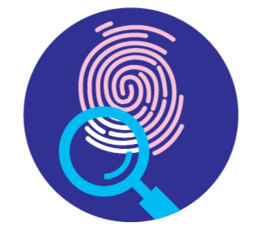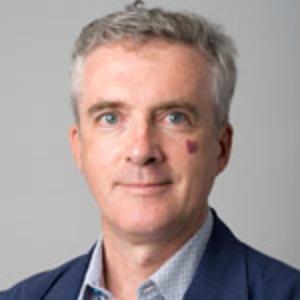Identifying preventable causes of cancer
 A team of 8 investigators
A team of 8 investigators
 France, UK and USA
France, UK and USA
 Geneticists, chemists, bioinformaticians, epidemiologists
Geneticists, chemists, bioinformaticians, epidemiologists

20 million
![]() 5 years
5 years
 Discover how unusual patterns of mutation are induced by different cancer causing events
Discover how unusual patterns of mutation are induced by different cancer causing events
Background
Things in our environment and behaviours like smoking and drinking alcohol, can cause cancer by damaging our cells’ DNA. This damage occurs in distinctive patterns – known as ‘mutational fingerprints’ – that are unique to the factor that caused the damage. For example cancers caused by UV exposure have a different mutational fingerprint to cancers linked to tobacco.
Right now, scientists know of around 50 cancer-associated mutational fingerprints. But they only know what causes around half of them.
Professor Mike Stratton and his team of scientists from the UK, France and the US, together with collaborators from the International Agency for Research on Cancer, want to fill in the missing gaps. Their Cancer Grand Challenges project aims to use cancer-associated mutational fingerprints to determine causes of cancer and reveal the biology behind how they cause different cancers to develop.
The research
In a project of epic scale that spans 5 continents, including countries that have high and low levels of cancer, Stratton’s team want to build a much deeper understanding of DNA damage – what causes it and how it leads to cancer. They want to figure out what causes the other 25 or so cancer-associated mutational fingerprints and identify which ones are due to environmental exposures and lifestyle behaviours.
They also want to figure out exactly how different environmental factors and behaviours cause cancer, and at the same time search for other cancer-associated mutational fingerprints we don’t yet know about.
To do this, they will study and compare the mutational fingerprints present in samples collected from 5,000 pancreatic, kidney, oesophageal and bowel cancer patients, who come from countries that have different levels of these cancers. They will also gather information about the habits, lifestyles and environments of these patients to look for clues to what the causes might be.
The impact
This research could dramatically improve our understanding of what causes cancer. It could also lead to better information for people on how to reduce their cancer risk and help inform government policies to reduce exposure to cancer-causing agents.
Ultimately, it could help prevent more cancers and reduce the global burden of this disease.
Project update

The Mutographs team have hit the ground running and already made impressive progress in the first year. The researchers have overcome significant logistical, ethical and legal challenges to the different aspects of their international programme – from identifying the ideal patient cohorts to study to establishing a ‘data train’ to regularly share the vast quantities of data being produced across the consortium.
So far, the team has sequenced the DNA of more than 1,500 patient samples, with more expected from Iran and Brazil. From this, they are defining in detail the mutational signatures in oesophageal cancers in the first instance. They are also finding intriguing results in a number of non-cancer tissues which are beginning to tell us about how cancers develop.
The Mutographs team will continue to build on this extraordinary progress and grow their impressive network of collaborators around the world as they delve deep into the biology of DNA damage.







